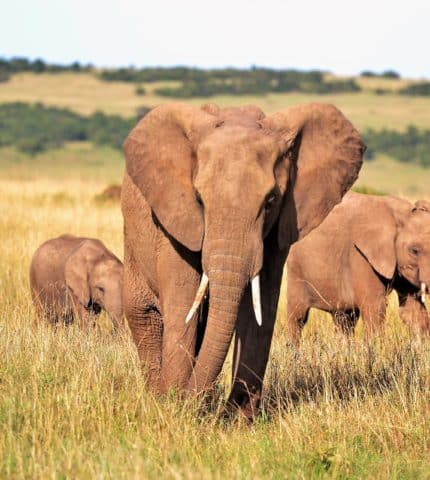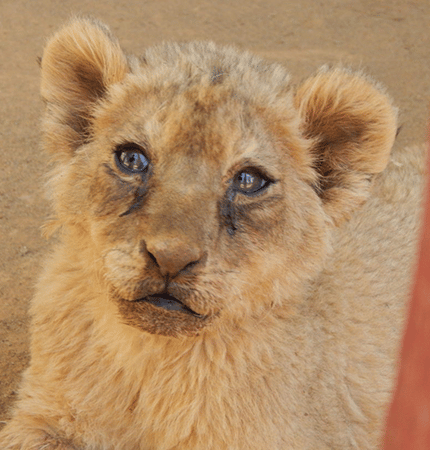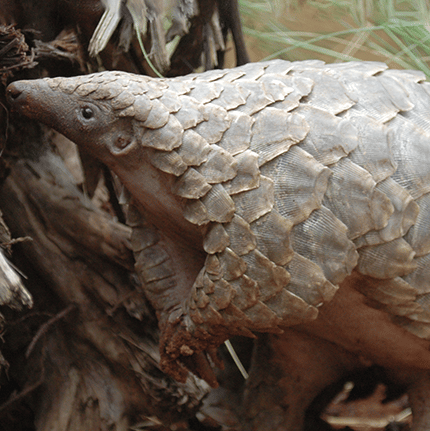Humane Society International is a fearsome foe to wildlife traders the world over. We are experts at persuading governments to maintain bans and control international trade in the lives and body parts of elephants, rhinos, lions, leopards, giraffes, birds, turtles, sharks and so much more. Armed with scientific evidence we will always be at conferences of the UN Convention for International Trade in Endangered Species (CITES) to defend threatened species heavily in demand in international markets.
On the ground, Humane Society International Australia funds anti-poaching projects and patrols across Africa and Asia saving countless animals.
Select a country below to learn more about the anti-poaching and illegal wildlife trade prevention projects we fund in those regions.
Supporting anti-poaching efforts in Zambia
HSI has supported the anti-poaching and wildlife rescue and rehabilitation work of Conservation South Luangwa (CSL) in Zambia since 2012.
Human populations have more than doubled in the past 20 years in this area of Zambia putting a strain on neighbouring wildlife and generating a massive spike in poaching for bushmeat. Snares are the weapon of choice for poachers generating high returns with low risk and they take a terrible toll on a wide variety of wild animals including highly endangered wild dogs.
More than 10,000 snares have been removed by CSL scouts and more than 160 elephants, 25 lions and 20 hyenas have been treated for snare wounds since 2005. HSI support has also assisted CSL with aerial surveillance to track poachers and the training of detection dogs which are having a significant impact on locating wildlife products during village searches working with the Zambia Wildlife Authority.
Helping to keep painted dogs out of poachers’ snares in Zimbabwe
HSI has been supporting the Painted Dog Conservation Project in Zimbabwe since 2003.
Our support has helped to fund vital Anti-Poaching Units which undertake daily patrols providing direct protection for painted dogs as well as protecting their habitat and other species in the ecosystem. Poaching for bush meat is a major threat to wildlife in Zimbabwe, especially Painted Dogs which roam in excess of 12 miles a day as they hunt which makes them highly vulnerable to deadly snares.
Funding community sea turtle conservation programs in Bali
HSI has been supporting the Bali Sea Turtle Society (BSTS) since 2011.
There are only seven species of sea turtle in the world and six of them are found in Indonesian waters. The critically endangered Hawksbill turtle, endangered Green and Loggerhead turtles, vulnerable Olive Ridley and Leatherback turtles and the Flatback turtle (whose conservation status is unknown due to a lack of data).
BSTS runs community-based conservation programs to help protect these turtles from poaching and to work to educate and change local behaviour from consuming turtles to conserving them. One of the key activities is nest protection. The team works with volunteers to record the location, number and species of sea turtles laying eggs.
Then they relocate the eggs to a protected hatchery safe from poachers, tourist traffic and feral dogs until they are ready to hatch when they are returned to the beach for release back to the wild. The teams also works to rescue, rehabilitate and release stranded turtles during the west monsoon season and conducts a host of education activities for both locals and tourists.
Protecting orangutans in Bukit Tigapuluh
The Wildlife Protection Units protect orangutan populations from poachers as well as prevent illegal logging and habitat destruction. They provide emergency care for injured orangutans and assist with their rehabilitation and release.
Each ranger protects 20 orangutans and 10 km2 of rainforest and works with local communities to help them understand the importance of protecting animals and the habitat they rely on.
Helping to stop wildlife trade in Vietnam
HSI has supported the Wildlife Crime Unit (WCU) of Education for Nature Vietnam (ENV) since 2006 and other wildlife trade programs in Vietnam since 2000.
Vietnam is a hotspot for wildlife crime, driven partially by a growing middle class increasing consumer demand for foods, medicines and pets that were previously beyond reach, and also to feed similar growing demand in China. ENV tackles this crisis by operating a public toll-free national hotline for reporting wildlife crimes. ENV works closely with law enforcement agencies to track each case from investigation through to prosecution where appropriate. ENV has tackled everything from restaurants serving endangered pangolins to a ring smuggling macaques for the pet trade.
A special focus is given to priority species including bears, tigers, rhino horn and ivory trade and the team also works to strengthen local policy, legislation and enforcement aimed at protecting wildlife.



